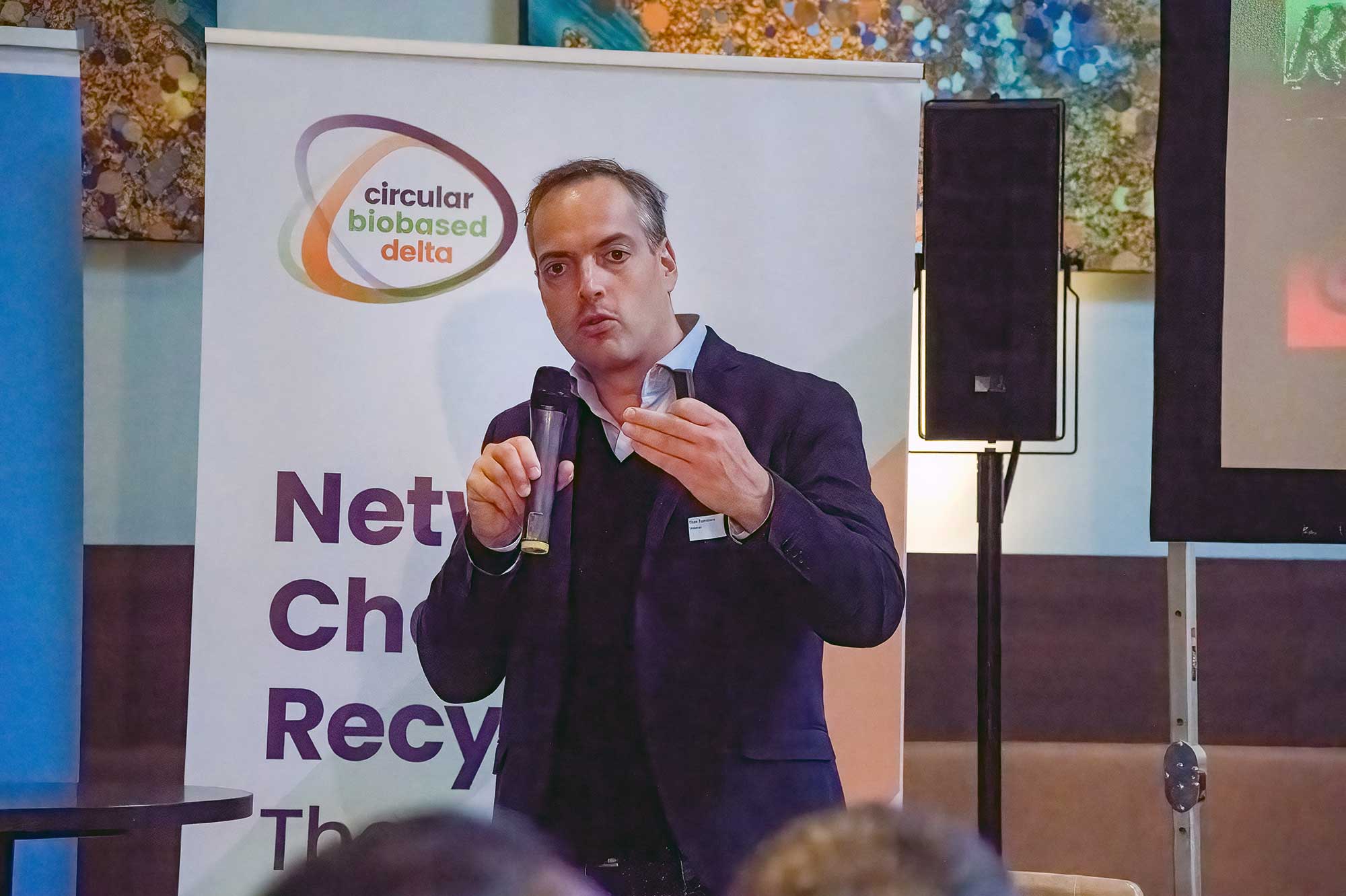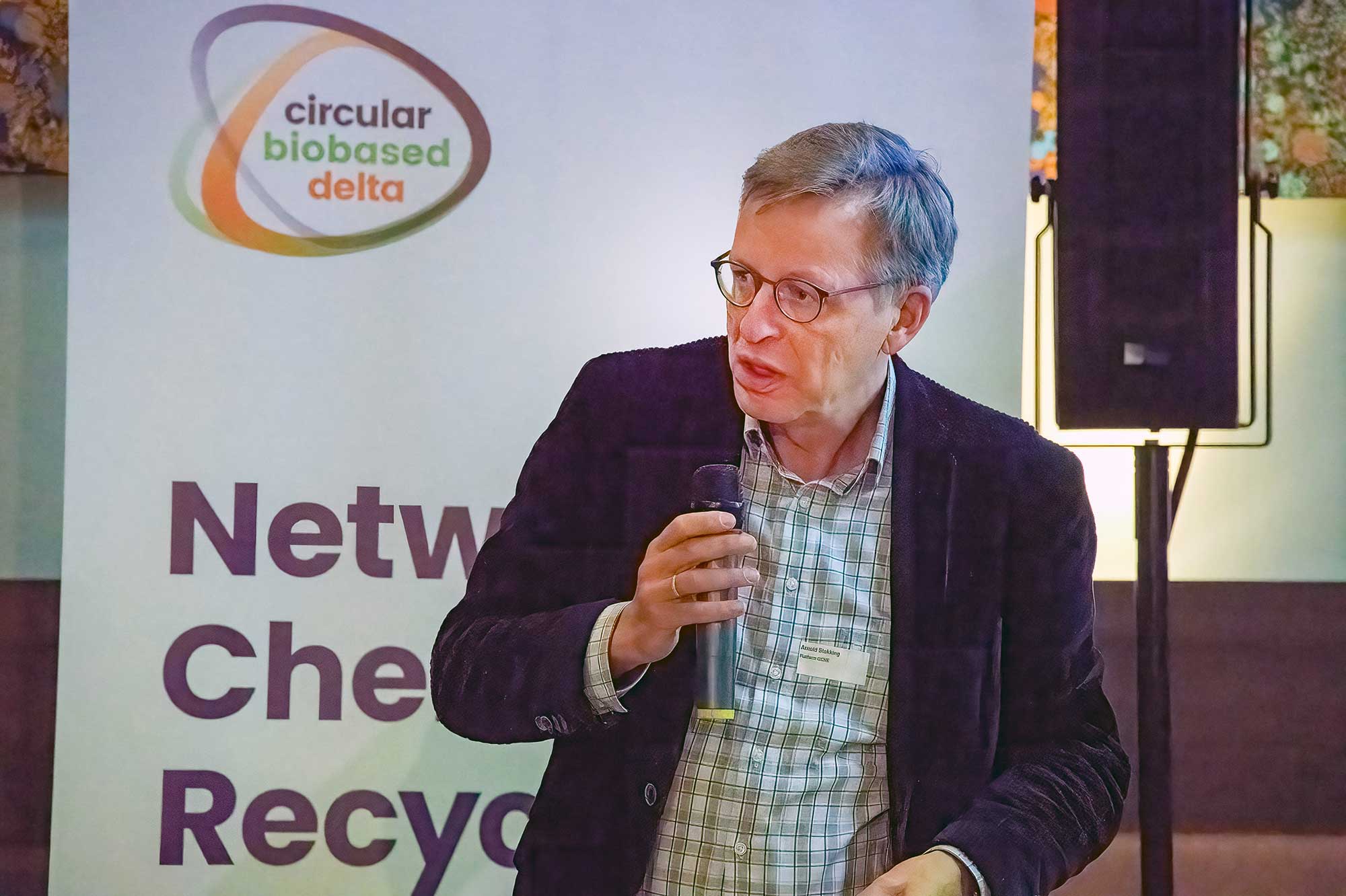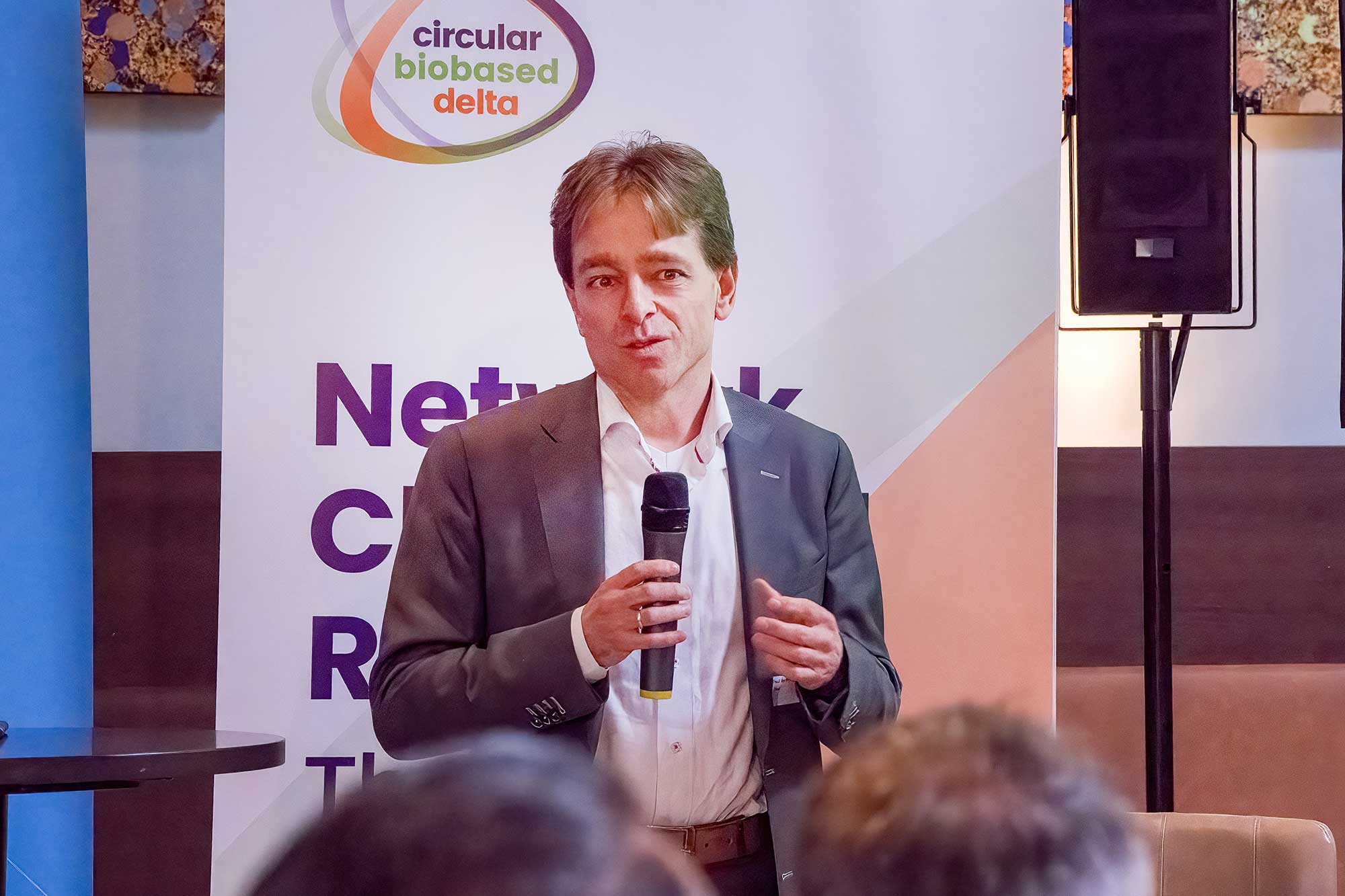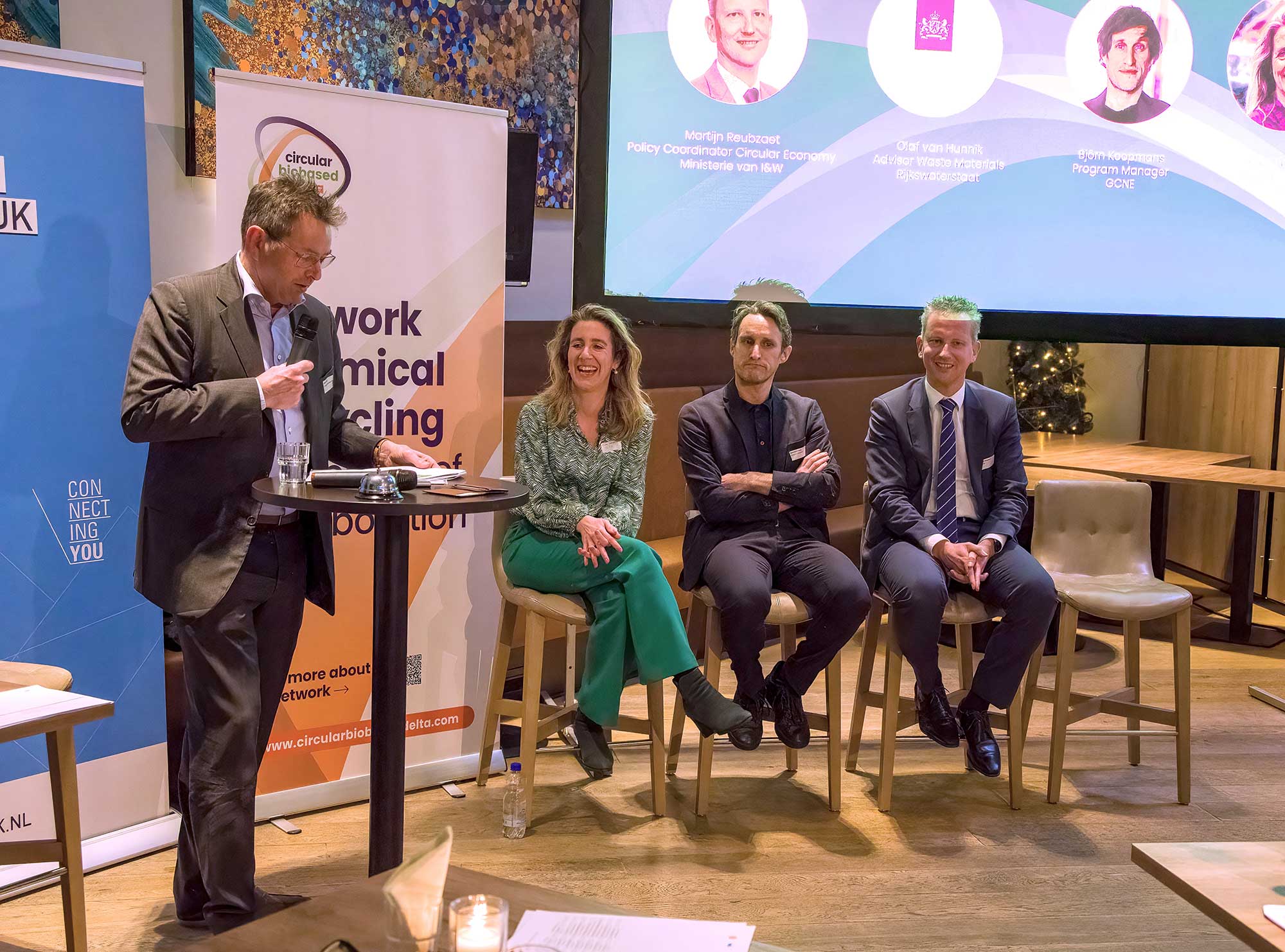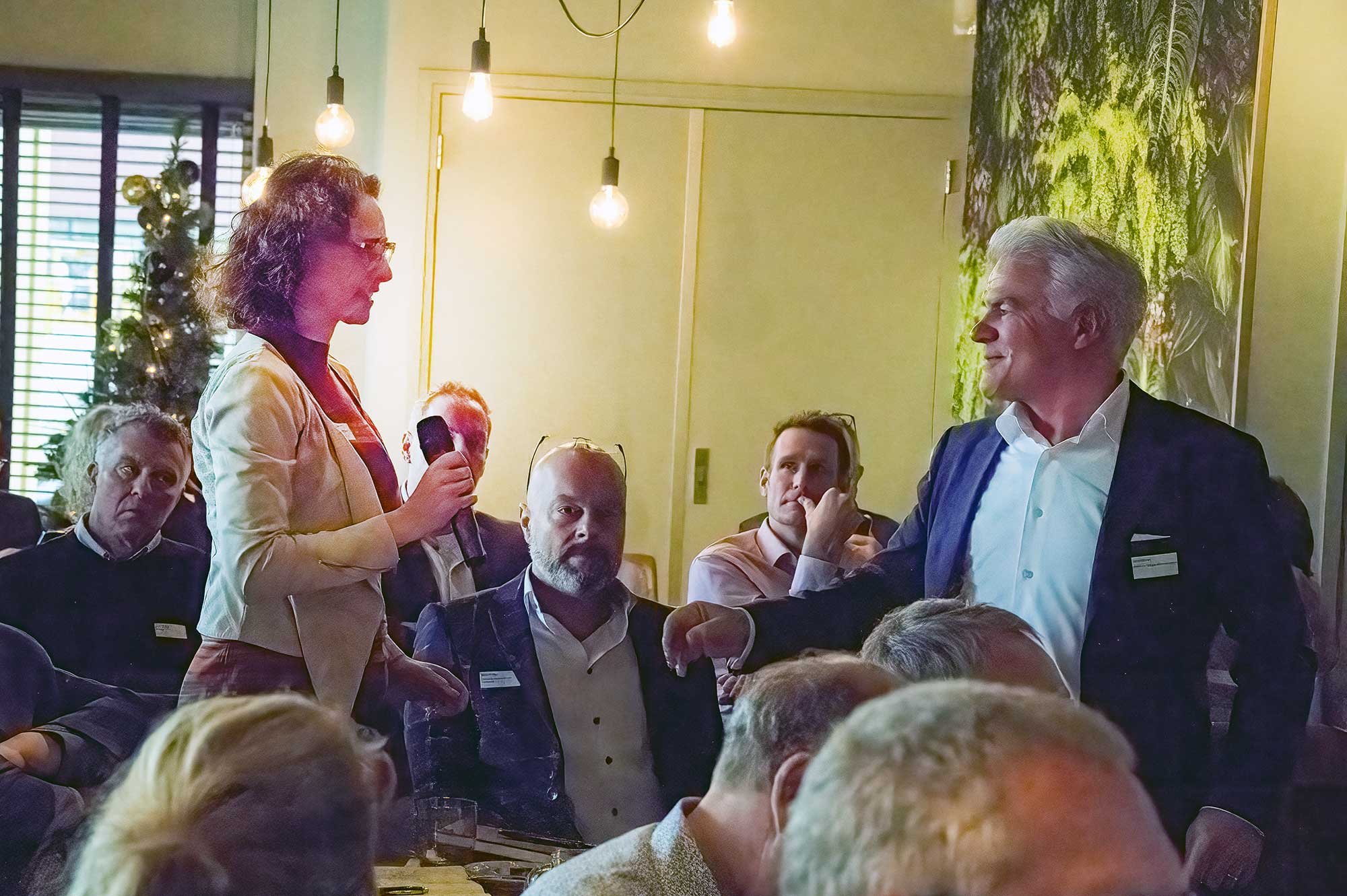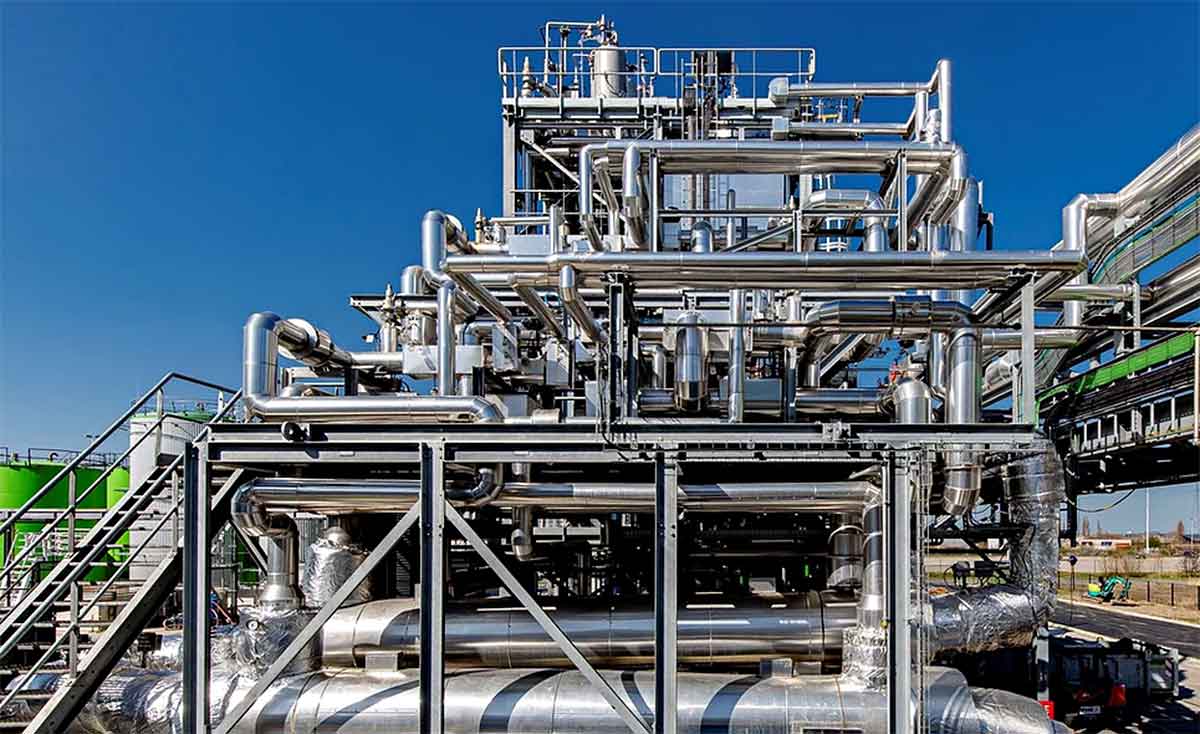Feedstock recycling involves turning mixed streams containing both biomass and waste plastics into new raw materials for the chemical and plastics industry. The move to circular raw materials involves changes throughout the chain. National and European legislation traditionally focused on sharply distinguishable sectors such as waste and chemicals will also have to be adjusted. Cooperation is the key. Not only within the chain, but also across sectors, regions and even countries.
Shell
Chemical recycling is about a global market, Paul de Hoog of Shell also stressed at the meeting in Moerdijk. Shell has set itself the goal of processing one million tonnes of waste plastics into pyrolysis oil by 2030, as a replacement for petroleum in the production of chemical building blocks for new plastics. This can only be achieved by working on it at several production sites: in the Netherlands, Germany the US and Singapore at the same time.
Before the end of this year, Shell and technology provider BlueAlp will start building a 50kton upgrading plant in Moerdijk to make the oil suitable for current naphtha crackers. ” By doing so, we are giving pyrolysis oil suppliers a signal that there is a customer who is investing in this technology and is willing to buy their oil on a larger scale,” says De Hoog. ” This allows the Netherlands to become one of the frontrunners in the transition.” The new plant should be operational by 2024.
Incidentally, to make enough pyrolysis oil for the entire chemical industry, the current collection of packaging plastic is not sufficient. Kim Meulenbroeks of Renewi says it is conceivable that in the future the Netherlands may even have to import plastic waste for this purpose. “Ultimately, waste is also a raw material that goes to the highest bidder.”
Responsible choice
On the other hand, brand owners play a role: big brand manufacturers like Unilever that choose to use circular plastics in the packaging of their products. “Together with the chemical sector, we are taking responsibility so that consumers can make a sustainable choice at the supermarket,” says Unilever’s Thor Tummers. The multinational wants to use only plastics that are either compostable, reusable or recyclable and halve the use of ‘virgin’ raw materials. “We even want to collect more than we are selling ourselves.”
This transition already requires substantial investments, but the business case is improving, according to Tummers. “We are working on a substantial reduction of CO2 emissions, we are creating jobs and ensuring the availability of sufficient materials. In this way, we can position the Netherlands as a kind of living lab for chemical recycling.”
Silver lining
Arnold Stokking, lead initiator of the Green Chemistry, New Economy (GCNE) platform, points out that chemical recycling is certainly not just about technology, but about all the other preconditions around it, such as the creation of value chains, financing, upscaling and legislation. A silver lining is the fact that the Dutch government is seriously investing in innovation, for instance through Invest-NL and the National Growth Fund. GCNE is involved in several Growth Fund projects relevant to chemical recycling, including Circular Plastics, Future Carbon and the new Biobased Circular (BBC) application. At the same time, the platform is building to bridge the gap between small and medium-sized companies looking to scale up and the big industry players that are indispensable to make a real difference in the market.
In the meantime, new European directives on chemical recycling are awaited. This is being worked on, Martijn Reubzaat, policy coordinator at the Dutch Ministry of Infrastructure and Water Management (IenW), stated. However, the machinery in Brussels is turning at a slow pace and he also expressed the expectation that there is unlikely to be clarity on this within five years.
Practical help
Especially the ‘end-of-waste status’ regulations (when does waste cease to be waste and can it be considered a clean resource?) is one of the big challenges. GCNE programme manager Anita Lieverdink explained that research is currently being conducted with the aim of providing entrepreneurs with mainly practical help. The Ministry of Infrastructure and the Environment, Rijkswaterstaat and the Environment Services are currently drafting end-of-waste guidelines for entrepreneurs. However, these will only apply in the Netherlands. According to Björn Koopmans (GCNE), entrepreneurs who comply with Dutch rules can nevertheless apply for the so-called ‘regulatory sandbox’: an instrument that allows experimentation on a European scale for cases where there are no European regulations yet.
The message is clear. The market for chemical recycling is far from finalised. There are still many uncertainties regarding raw materials from waste, logistics, standardisation and regulation. But this is no reason to wait and see. Freek van Eijk (Circular Biobased Delta): “The details may still be unknown, but the direction we are all heading in Europe is clear. If you believe in the circular economy and see what’s in the pipeline, it’s better to anticipate what’s ahead than to sit back.” Or, as Joop Groen (Network Chemical Recycling) puts it, quoting Dutch ‘philosopher’ Johan Cruijff: “You can only be on time at one moment. All other moments are either too early or too late. The right time is now.”
Download the presentations of the summit here.
See also the report and video impression of the Chemical Recycling meeting held earlier in Germany.

